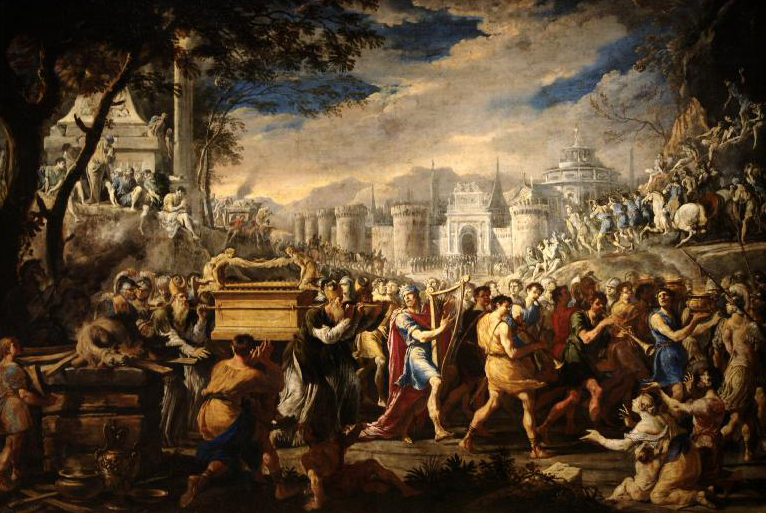by Rev. Dr. Jim Warnock

We don’t think as often as we should about the Old Testament. These ancient Hebrew Scriptures offer a striking interpretation of humanity, who we are and how we relate to the Divine. More importantly, they demonstrate how the Divine relates to us, explained through the story of the Jewish people. I recently preached on Psalm 132. Not all of the Psalms are locked to a particular time and place, but this one is. It’s written to honor King David after his return of the Ark of the Covenant to Israel. The original story is found in 2 Samuel 6-7, and it bears some relevance to our own time. The Ark had been constructed by Moses, and it was seen as the place where God’s glory dwelt. The Israelites had been accustomed to taking it with them when they fought their neighbors, and it usually brought victory. Once, under Saul, it did not, and the Philistines captured it. That turned out to be unfortunate for them, since it brought them nothing but trouble, to the extent that they gave it back.
David had the idea to bring the Ark back from the countryside to Jerusalem, his capital. In that way God’s glory would dwell in the home of his people. For the Israelites, this was a very popular move. The people rejoiced along the way, and David was known to be dancing himself as the Ark progressed. Still there were issues. Even before the departure to Jerusalem, 70 men of Beth-Shemesh, curious to see the Ark, got too close and died. The Scriptures tell us God struck them down (1 Samuel 6:9), no reason given. On the way to Jerusalem, the oxen stumbled. Uzza, the driver, reached back to steady the Ark and died. I don’t think there is Divine intent here. The Ark was powerful, and the Old Testament warns about seeing God directly. To me, the close contact would be something like being around an unshielded nuclear reactor. It’s not a good idea.
The Ark did get to Jerusalem where it was received with joy. It remained there until the Babylonians conquered Israel in 70 A.D. Presumably it was carried off to Babylon from whence it disappears from history, to be located only on the big screen (see Raiders of the Lost Ark).
King David wanted to do a good thing. His intentions were right. Still, he had trouble. Uzza’s death made him question the entire project, doubting his capability to retrieve the Ark. It must have also frightened his retinue, as they would also have heard about the unfortunate 70. David might have asked where God was to be found in this. I would have, but he persisted and restored the Ark to its rightful place.
This is where the Hebrew Scriptures relate to us. We are living in difficult times in a nation starkly divided. We are about to be led by a man who traffics in hatred and division. God’s purposes remain inscrutable, at least to me. Our task, however, remains clear. We are to love our neighbors, no matter who they are, to adhere to our baptismal covenant, to continue to preach the reconciliation that comes through Jesus. David is our example of persistence, of faith in God and God’s righteousness.
